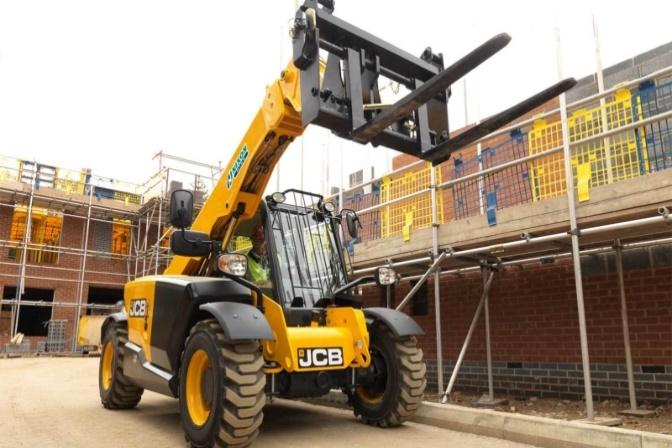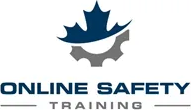Telehandler Forklift Operation

Mastering Telehandler Forklift Operation: Essential Skills for Safety in Canada
In Canada, the operation of telehandler forklifts, also known as telescopic handlers, is essential across various industries, including construction, agriculture, and warehousing. These versatile machines combine the capabilities of forklifts and cranes, allowing operators to lift, move, and place loads with precision and efficiency. However, operating a telehandler forklift requires specific skills and training to ensure safety on the job site. In this article, we will explore the operator skills required to safely operate a telehandler forklift in Canada, highlighting the importance of proper training and proficiency in handling these powerful machines.
- Comprehensive Knowledge of Telehandler Functionality:
- Before operating a telehandler forklift, operators must have a thorough understanding of the machine’s functionality. This includes knowledge of the various controls, levers, and features unique to telehandlers.
- Operators should be familiar with the telehandler’s hydraulic system, stabilizers, boom extensions, and load capacities. Understanding how these components work together is crucial for safe and efficient operation.
- Proficiency in Basic Operating Techniques:
- Mastery of basic operating techniques is essential for safe telehandler operation. This includes skills such as starting, stopping, steering, and maneuvering the machine in different environments and conditions.
- Operators must be able to control the telehandler smoothly and precisely, especially when positioning loads or working in confined spaces. Practice and experience are key to developing these fundamental skills.
- Ability to Assess and Manage Risks:
- Telehandler operators must have strong hazard awareness and risk assessment skills to identify potential dangers in the work area. This includes recognizing overhead obstacles, uneven terrain, and unstable ground conditions.
- Operators should be trained to assess load weights and sizes accurately to prevent overloading or imbalance, which can lead to tipping or accidents. Maintaining a safe distance from hazards and other workers is also crucial.
- Understanding of Load Handling and Stability:
- Safe load handling is a critical aspect of telehandler operation. Operators must understand the principles of load stability, including how to properly secure, balance, and position loads to prevent shifting or falling.
- Proper load management techniques, such as keeping loads close to the machine’s center of gravity and using load-handling attachments correctly, are essential for maintaining stability and preventing accidents.
- Mastery of Boom Operation and Extension:
- Telehandlers are equipped with telescopic booms that allow operators to reach heights and distances beyond the capabilities of conventional forklifts. Proficiency in boom operation and extension is therefore essential.
- Operators must understand how to safely extend and retract the telehandler’s boom while maintaining stability and balance. They should also be able to control boom elevation and articulation for precise load placement.
- Effective Communication Skills:
- Communication is key to safe telehandler operation, especially in team environments where coordination with ground personnel is required. Operators must be able to effectively communicate with spotters, signalers, and other workers.
- Clear and concise verbal and hand signals should be used to indicate load movements, direction changes, and potential hazards. Operators should also be attentive to instructions from supervisors and colleagues to ensure smooth operations.
- Adaptability and Problem-Solving Skills:
- Telehandler operators must be adaptable and capable of responding to changing conditions or unexpected challenges on the job site. This may include adjusting to uneven terrain, inclement weather, or unexpected obstacles.
- Strong problem-solving skills are essential for quickly assessing and addressing issues that may arise during operation, such as equipment malfunctions, mechanical failures, or blocked pathways.
- Commitment to Continuous Learning and Improvement:
- Safety should always be a top priority for telehandler operators, and this requires a commitment to continuous learning and improvement. Operators should stay updated on industry best practices, regulations, and equipment advancements.
- Participating in regular training sessions, safety meetings, and equipment inspections can help operators enhance their skills, reinforce safety protocols, and stay informed about new technologies or techniques.
Operating a telehandler forklift in Canada requires a unique set of skills and competencies to ensure safety and efficiency on the job site. From mastering basic operating techniques to understanding load handling principles and boom operation, telehandler operators must be proficient in various areas to perform their duties effectively.
Proper training, experience, and ongoing education are essential for developing and maintaining the skills required for safe telehandler operation. By prioritizing safety, adhering to best practices, and continuously improving their abilities, telehandler operators can contribute to a culture of safety and excellence in the workplace, ultimately minimizing risks and enhancing productivity in Canada’s diverse industries.
Categories
- Aerial Lift
- ATV Training
- Bear Awareness
- Chainsaw Training
- Confined Space
- Defensive Driving
- Forklift Training
- Lockout Tagout
- Online Safety Training
- Overhead Crane
- Pipeline Construction Safety Training
- Propane Handling
- Safety Training Benefits
- Scissor Lift
- Skid Steer Training
- Space Awareness
- TDG
- Telehandler Forklift
- Traffic Control
- Train the Trainer course
- Training Course
- Uncategorized
- WHMIS
- Workplace Harassment and Violence Preventiont
